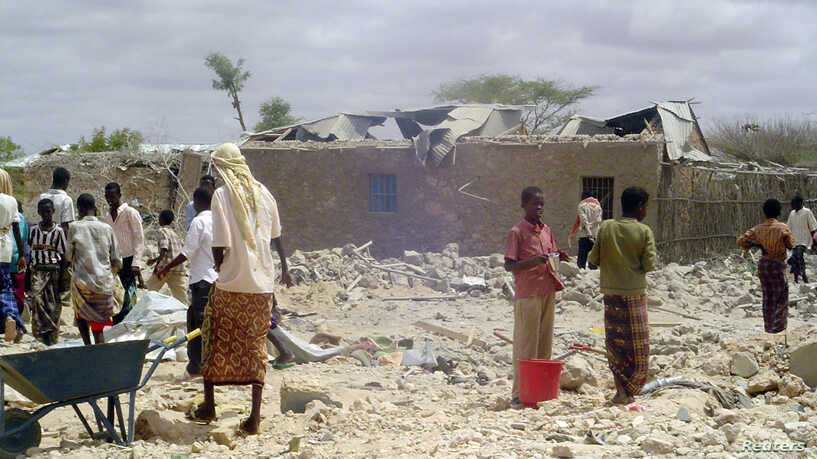PENTAGON – The pace of U.S. military strikes against al-Qaida affiliate al-Shabab in Somalia this year is nearly on par with the number of strikes against Islamic State in Iraq and Syria.
The U.S. has carried out 25 strikes against al-Shabab to date in 2020, including one Monday in the vicinity of Janaale, Somalia, that U.S. Africa Command (AFRICOM) said killed four terrorists.
Data released to VOA by a U.S. defense official show the U.S. carried out 29 airstrikes against Islamic State in Iraq and Syria from January 1 to March 1, the latest date in which strike data was available. A full strike report from Operation Inherent Resolve is expected later this week.
Strikes in Iraq and Syria have significantly tapered off since the territorial defeat of the so-called Islamic State caliphate last March.
In 2019, there were more than 2,000 airstrikes in Iraq and Syria, with at least 1,600 of those carried out in the first couple of months. U.S. Central Command has decreased troop numbers in Syria, where thousands of IS fighters are estimated to remain, but increased troop numbers elsewhere in the Middle East in an effort to counter the threat of Iran.

Meanwhile, AFRICOM conducted a record 63 strikes in Somalia last year. Most were against al-Qaida affiliate al-Shabab, which has an estimated 6,000 militants in Somalia, with a handful of strikes against Islamic State. There were 47 U.S. military strikes in Somalia in 2018.
“Airstrikes are preventative measures to ensure al-Shabab does not increase in size and strength,” AFRICOM spokesman Maj. Karl Weiss told VOA on Monday. “That said, airstrikes and kinetic operations are not the command’s primary effort in Somalia; our core activity is the training of Somali security forces.”
Despite the ramped up strike numbers in Somalia, Secretary of Defense Mark Esper has appeared averse to adding more U.S. troops to Africa, where Islamic extremists have plagued the continent from Somalia to the Sahel.

The Pentagon is in the middle of a review of AFRICOM that could reduce the number of U.S. troops on the continent. The first troop change in Africa under Esper’s leadership withdrew conventional troops and replaced them with specialized military trainers.
Esper has said the move would leave “roughly the same number of troops on the continent,” while giving U.S. commanders the capability to bolster partner forces.
Members of Congress have pushed back against any potential troop cuts, saying a decrease could provide an opening for strategic competitors Russia and China. Republican Senators Lindsey Graham and Jim Inhofe, the chairman of the Senate Armed Services Committee, have even called for an increase in the number of U.S. troops deployed to Africa.
Esper is trying to follow a shift started by his predecessor, Jim Mattis, away from counterterrorism toward strategic competition with China and Russia. During Mattis’ time as defense secretary, the U.S. pulled 100 to 200 troops from West Africa and was preparing for further cuts.
Defense officials said extremist groups in West Africa did not appear to pose a threat to the U.S. homeland, but they have since continued to pummel U.S. allies, especially in countries like Burkina Faso. A top general in U.S. Africa Command admitted to VOA at the time of the troop pullout that the U.S. and its allies were “not winning” the counterterror war for the Sahel.
AFRICOM Commander Gen. Stephen Townsend has said al-Shabab is the “largest and most violent” of al-Qaida’s branches worldwide. Defense officials have stressed that while al-Shabab does not possess the capability to strike the U.S. homeland, the group has the intent to do so.
“It is important to impact their ability to threaten peace and security in East Africa and prevent their threats against the U.S. from being a reality,” Townsend said in a press release last month.
Townsend and CENTCOM Commander Gen. Kenneth “Frank” McKenzie testify together in front of the House Armed Services Committee on Tuesday.
Source: VOA-Africa

